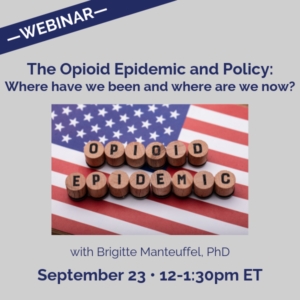Opioid Epidemic and Policy: Where have we been and where are we now?, 9/23
Category : News/Events
Training Description
Systems thinking, especially with simulation models, facilitates understanding of complex health policy problems. Using a simulation model to educate legislators, public health experts, and education leaders about the policies that have the greatest short- and long-term impact on childhood obesity can encourage strategic investment in low-cost, high-return policies. This webinar will feature the Georgia childhood obesity model created by and for legislators and other stakeholders to support dialogue on policy interventions designed to reduce childhood obesity (specifically, BMI for age percentiles). Participants will have the opportunity to explore the model and understand how policies and evidence-based interventions can impact obesity prevalence and costs over time.
Learning Objectives
By the end of this training, participants will be able to:
- Describe the history, policy response, and context of the opioid epidemic and relevance to current and future response.
- Explain the policy response to the opioid epidemic, and how the SUPPORT Act is guiding the current response.
- Identify how response to the opioid epidemic as a public health crisis has immediate and broader effects, including both intended and unintended effects from a systems perspective.

To register, click HERE.
